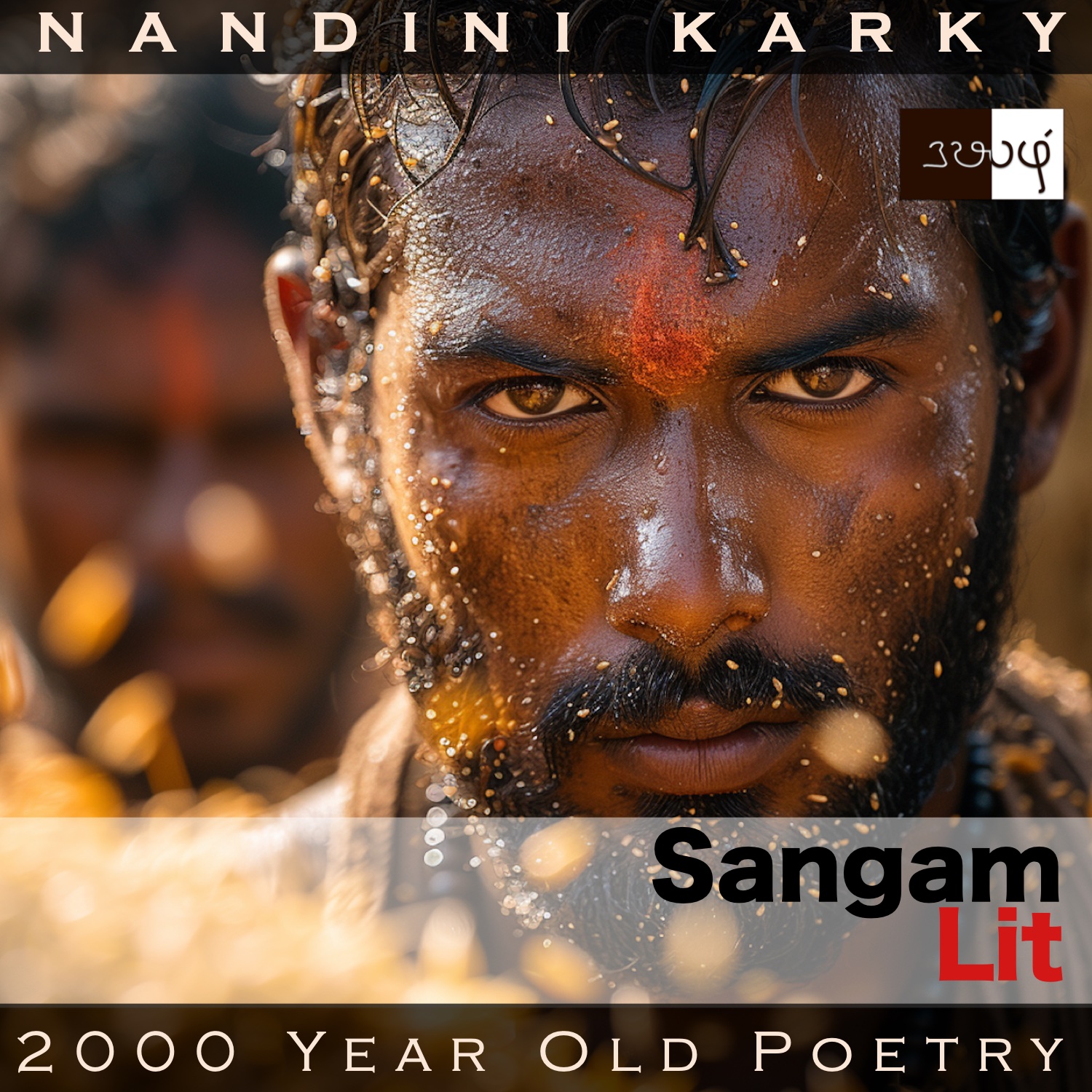Podcast: Play in new window | Download
Subscribe: Apple Podcasts | Spotify | Amazon Music | Android | iHeartRadio | TuneIn | RSS | More
In this episode, we observe the extent of a leader’s generosity, as depicted in Sangam Literary work, Puranaanooru 327, penned by an anonymous poet. The verse is situated in the category of ‘Vaagai Thinai’ or ‘Victory’ and reveals the impoverished state of a courageous leader.

எருது கால் உறாஅது, இளைஞர் கொன்ற
சில் விளை வரகின் புல்லென் குப்பை,
தொடுத்த கடவர்க்குக் கொடுத்த மிச்சில்
பசித்த பாணர் உண்டு, கடை தப்பலின்,
ஒக்கல் ஒற்கம் சொலிய, தன் ஊர்ச்
சிறு புல்லாளர் முகத்து அவை கூறி,
வரகு கடன் இரக்கும் நெடுந் தகை
அரசு வரின் தாங்கும் வல்லாளன்னே.
A crisp verse containing a substantial core! The poet’s words can be translated as follows:
“Without employing bulls to stomp, youngsters did the work themselves for it was a dull and small pile of a millet harvest. After giving to creditors who besieged him, the rest was given away for bards to feed on, and since there was nothing left, so as to slay the poverty of his kith and kin, saying good words to seek the favour of the small-minded people of his village, he asks for a loan of millets. That great lord has the ability to withstand the assault of even the greatest of kings!”
Time to explore the nuances. The poet talks about a particular event by mentioning the absence of that which is to be expected. To clarify, he mentions how without using bulls to stamp on the millets so as to remove the husks, the leader of the town makes young men do the job. When we ask why, the poet clarifies this is because the harvest was not much and it yielded only a small pile of millets. Food was the gold then, and once this news reached the ears of this leader’s creditors, they converge on him, demanding their share. So, the man settles them. Next, when he goes home, bards are waiting for him, seeking his patronage. He gives the rest of the millets to those bards. After those artists leave, the leader’s relatives arrive there, seeking food. As it was considered dishonourable to say no to one’s relatives, the man then once again goes to those people, who are concerned only about trade, and pleads for a loan of millets, so as to give away to his kith and kin, thus starting what seems like an interminable cycle of debt. While his resource management seems so below par, the man is exceptional when it comes to courage in the battlefield, for he can drive away even an emperor’s army, the poet concludes.
It matters not where a man comes from or what his financial status is, courage can arise anywhere, these poets seem to say. Now reverting to that sequence of events wherein a man settles his loan, gives some to bards, and then borrows again instantly to feed his kith and kin, this etches the habit of taking loans among the poor that goes on till this day in the villages of Tamilnadu. Loans beyond one’s capacity are being taken without a thought to host festivals, to conduct a marriage ceremony, why even for a funeral. Then, these people suffer for long, unable to see any relief from their mounting debt. Though this age-old verse only praises the good nature of the leader in going beyond his means to be compassionate, with a clear eye, we can infer a cautionary tale and employ extra thought and care before venturing into this man-made trouble called debt!




Share your thoughts...